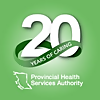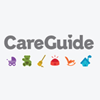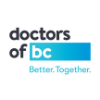Speech Language Pathologist III
BC Children’s Hospital & BC Women's Hospital & Health Centre
Vancouver, BC
What you’ll do
Assess and diagnose communication disorders in children with, or suspected of having, cleft palate and / or other craniofacial conditions, including assessment of oral motor / pre-speech skills as appropriate.
Use standardized and non-standardized assessment procedures including perceptual and instrumental measures nasometry, pressure-flow analysis, nasoendoscopy and videofluoroscopy).
Determine whether speech disorders are structural, phonological, compensatory or neuromuscular in nature; makes recommendations regarding appropriate management;
surgical intervention, speech prostheses, and / or speech therapy.). Consult with surgical team on appropriate surgical procedures.
- Recommend an appropriate remediation program in the form of direct therapy, consultation and training to parents, care-givers, and / or professionals, periodic follow-up where necessary, and / or referrals to other professionals as indicated.
- Share assessment and treatment recommendations with parents and team members, and with community service providers and professionals in the community as appropriate.
Provide consultative support to community therapists regarding appropriate intervention strategies for individual clients.
Liaise with other agencies to ensure adequate follow-up of communication problems.
- Contribute to the coordination of the Cleft Palate-Craniofacial Program clinics : facilitate priorization of clinic consultations and referrals, and, recommended follow-up for children based on guidelines for best practice for assessment and treatment of cleft lip / palate and related condition in the correct sequence from birth to age 19.
- Act as a clinical resource person to the Cleft Palate-Craniofacial Program interdisciplinary team, and other health care professionals throughout the hospital, as well as community hospitals and community health care professionals and agencies throughout British Columbia, Canada, and internationally on the management of children with cleft lip and palate.
Act as a consultant to community agencies in developing programs and services to meet the needs of children with cleft lip and palate.
Record patient information, assessment results and treatment recommendations in the Cleft Palate Database and provides written reports.
What you bring
Qualifications
- Graduation from an academic program in speech-language pathology approved by the College of Health and Care Professionals of British Columbia.
- Five (5) years recent, related clinical experience or an equivalent combination of education, training and experience.
- Masters level education and / or training specific to cleft lip and palate.
- Certification / demonstrated successful completion of advanced training or education specific to cleft lip and palate beyond entry level to practice.
- Full registration in the College of Health and Care Professionals of British Columbia.
Skills & Knowledge
- Broad knowledge of speech-language pathology diagnostic and therapeutic principals, procedures and approaches, and clinical best practices relevant to the population.
- Current knowledge of child development and child language development.
- Knowledge of developmental and acquired conditions impacting on and coexisting with communication and speech and language disorders.
- An understanding of the process of differential diagnosis of speech, language, communication and swallowing disorders.
- Broad knowledge of evidence based practice and research process and methodology.
- Ability to interpret nasopharyngoscopy results and to make recommendations for surgery related to speech, breathing and / or feeding in consultation with physicians on the cleft palate team
- Demonstrated counseling and listening skills to support families and their children who will face multiple surgeries and procedures and significant psychosocial adjustment to their physical appearance and speech quality
- Commitment to develop knowledge and understanding of legislative obligations and provincial commitments found in the foundational documents including Truth & Reconciliation Commission’s Calls to Action (2015), In Plain Sight (2020), BC's Declaration on the Rights of Indigenous Peoples Act (2019), United Nations Declaration on the Rights of Indigenous Peoples (UNDRIP), Reclaiming Power and Place Missing and Murdered Indigenous Women & Girls Calls for Justice (2019), the Declaration Act Action Plan and Remembering Keegan : A First Nations Case Study and how they intersect across the health care system.
- Commitment to upholding the shared responsibility of creating lasting and meaningful reconciliation in Canada as per TRC (2015) and BC's Declaration on the Rights of Indigenous Peoples Act (2019).
- As a strong asset for consideration, we are looking for our successful candidate to have : Knowledge of social, economic, political and historical realities of settler colonialism on Indigenous Peoples and familiarity with addressing Indigenous-specific anti-racism, anti-racism and Indigenous Cultural Safety and foundational documents and legislative commitments (The Declaration Act, the Declaration Action Plan, TRC, IPS, Remembering Keegan, etc.).
What we bring
Every PHSA employee enables the best possible patient care for our patients and their families. Whether you are providing direct care, conducting research, or making it possible for others to do their work, you impact the lives of British Columbians today and in the future.
That’s why we’re focused on your care too offering health, wellness, development programs to support you at work and at home.
- Join one of BC’s largest employers with province-wide programs, services and operations offering vast opportunities for growth, development, and recognition programs that honour the commitment and contribution of all employees.
- Access to professional development opportunities through our in-house training programs, including +2,000 courses, such as our San’yas Indigenous Cultural Safety Training course, or Core Linx for Leadership roles.
As per the current Public Health Order, full vaccination against COVID-19 is a condition of employment with PHSA as of October 26, 2021.
What we do
BCCH) provides care for the most seriously ill or injured children and youth from across British Columbia.
BCW) is dedicated to improving the health of women, newborns and families through a comprehensive range of services, research and education.
BCCH & BCW part of the Provincial Health Services Authority (PHSA).
The Provincial Health Services Authority () plans, manages and evaluates specialized health services with the BC health authorities to provide equitable and cost-effective health care for people throughout the province.
Our values reflect our commitment to excellence and include : Respect people Be compassionate Dare to innovate Cultivate partnerships Serve with purpose.
Learn more about PHSA and our programs :
PHSA, BCCH & BCW are committed to equity in our hiring and employment practices. With learning and compassion, we are addressing existing inequities and barriers throughout our systems.
PHSA is seeking to create a diverse workforce and to establish an inclusive and culturally safe environment. We invite applications and enquiries from all people, particularly those belonging to the historically, systemically, and / or persistently marginalized groups identified under the Human Rights Code.
One of PHSA’s North Star priorities is to eradicate Indigenous-specific racism, which includes dismantling barriers to health care employment at every level.
We welcome Indigenous individuals to apply and / or contact the Sanya'kula Team (Indigenous Recruitment & Employee Experience) for support at .
Indigenous-specific anti-racism initiatives are rooted in addressing the unique forms of discrimination, historical and ongoing injustices, and marginalization faced by Indigenous peoples.
These initiatives align with an Indigenous rights-based approach, recognizing the inherent rights and self-determination of Indigenous communities.
PHSA must uphold legislative obligations and provincial commitments found in the foundational documents such as including Truth & Reconciliation Commission’s Calls to Action (2015), In Plain Sight (2020), BC's Declaration on the Rights of Indigenous Peoples Act (2019), United Nations Declaration on the Rights of Indigenous Peoples (UNDRIP), Reclaiming Power and Place Missing and Murdered Indigenous Women & Girls Calls for Justice (2019), the Declaration Act Action Plan and Remembering Keegan : A First Nations Case Study.






